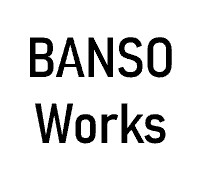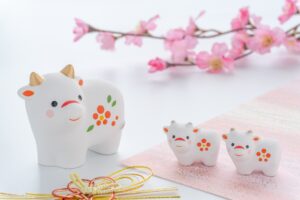Japanese Interview Dos and Don'ts: Mastering the Art of Business Etiquette

Introduction
Japan is a country renowned for its rich cultural heritage, technological advancements, and unique business practices. For those seeking to work or conduct business in Japan, understanding and adhering to the Japanese interview etiquette is crucial. The Japanese place significant importance on formalities, respect, and social harmony, and these principles are deeply ingrained in their business culture. In this blog, we will explore the dos and don'ts of a Japanese interview, helping you prepare for a successful and respectful encounter in this fascinating country.
See Also: ![]() Japan Business Card Etiquette: What to Know and Do
Japan Business Card Etiquette: What to Know and Do
Dos:
- Punctuality Matters:
In Japanese culture, punctuality is a sign of respect and professionalism. Arrive at least 10-15 minutes early for the interview. It demonstrates your commitment and eagerness towards the opportunity, and it allows you to compose yourself before the interview begins. - Dress Appropriately:
The Japanese adhere to a conservative dress code in professional settings. For interviews, men should wear dark suits with ties, and women should opt for conservative attire with limited accessories and makeup. Neatness and modesty are highly valued. - Bowing Greeting(お辞儀):
The traditional Japanese greeting is a bow. A slight bow from the waist is generally appropriate. It is essential to match the level of the bow to the person's seniority or social status. For example, a deeper bow is expected when meeting someone older or of higher rank. - Have Multiple Copies of Your Resume:
In Japan, it is customary to provide a printed copy of your resume in both English and Japanese. Make sure your resume is detailed, well-organized, and presented professionally. - Prepare a Japanese Business Card:
Business cards, known as "meishi," are exchanged at the beginning of the interview. Include your name, job title, company name, and contact details. Offer and accept the card with both hands as a sign of respect. - Research the Company and Interviewer:
Show genuine interest in the company by researching its history, values, and recent achievements. Also, learn about the interviewer's background and role within the organization. - Showcase Humility and Respect:
During the interview, emphasize your achievements and skills, but do so with humility. Avoid appearing arrogant or boastful. The Japanese value modesty and self-awareness. - Exhibit Good Manners:
Politeness and good manners are highly valued in Japanese culture. Use appropriate honorifics when addressing the interviewer, and avoid interrupting or speaking over others. Always wait for your turn to speak. - Express Gratitude:
After the interview, send a thank-you email or a handwritten note in Japanese to express your gratitude for the opportunity to interview. This small gesture will leave a positive impression.

Don'ts:
- Be Late:
Punctuality cannot be stressed enough. Being late is considered disrespectful and may jeopardize your chances of being considered for the position. - Use Informal Language:
Addressing the interviewer or any company representative with casual language is inappropriate. Stick to formal language and honorifics, even if the interviewer uses informal language first. - Overlook Business Card Etiquette:
Mishandling business cards is a significant faux pas. Never write on someone's card or put it in your pocket immediately after receiving it. Keep the cards on the table in front of you during the interview. - Cross Your Legs or Arms:
In Japan, crossing your legs or folding your arms is seen as defensive and disrespectful body language. Sit up straight and maintain an open posture throughout the interview. - Neglect Non-Verbal Cues:
Non-verbal cues play a vital role in Japanese communication. Avoid excessive hand gestures or maintaining intense eye contact, as it can be uncomfortable for the interviewer. - Oversell Yourself:
While it's essential to highlight your strengths, overselling yourself can be viewed negatively. Japanese employers appreciate modesty and humility. - Criticize Former Employers:
Speaking ill of past employers is considered unprofessional. Focus on your accomplishments and what you learned from previous experiences instead.
Conclusion
Mastering the art of Japanese interview etiquette is essential for anyone seeking to make a positive impression in the country's competitive job market. By adhering to the dos and don'ts outlined in this blog, you can navigate the interview process with confidence, demonstrating your respect for Japanese customs and traditions. A successful interview not only opens doors to professional opportunities but also fosters meaningful connections within this unique and vibrant business culture.


